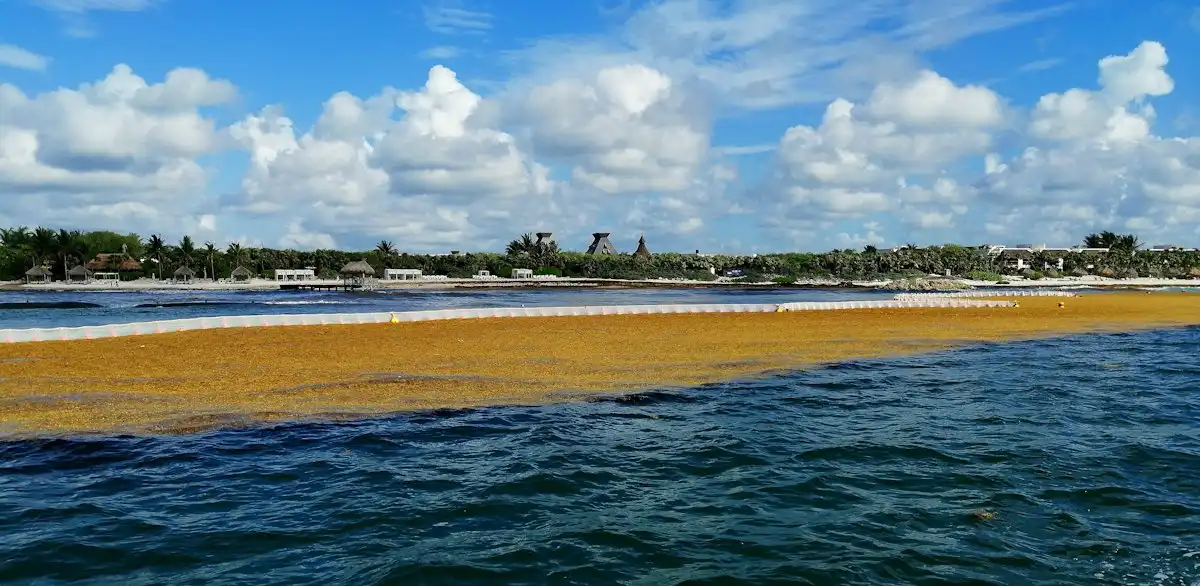A recent scientific study validates the proactive and cautious approach adopted by local authorities in Guadeloupe.
The installation of barriers diverting sargassum seaweed banks emerges as the best option, according to its findings. These installations limit strandings and, consequently, metal concentrations on exposed coasts.
The deployment of these diverting barricades is accelerating across the Guadeloupean territory to combat sargassum seaweed strandings, with varying degrees of success.

Picture: Sargabarriers, Floating Barriers by The Ocean Cleaner .fr
Nevertheless, this initiative is encouraged by a recent scientific study published in “Environmental Sciences and Pollution Research,” which confirms the effectiveness of “proactive policies in combating strandings” and advocates caution in rehabilitation efforts.
This study, conducted notably by a member of the mangrove biology team at the University of the Antilles (UA), focused on the kinetics of heavy metals contained in seaweed when they reach coastal environments. Samples were taken from the Guadeloupean coastline.
To determine this kinetics, i.e., the speed at which seaweed either releases or retains heavy metals when they wash ashore, scientists submerged experimental floating cages for 25 days in three different environments: coral reefs, seagrass beds, and within a mangrove.
Subsequently, scientists, including Pierre-Yves Pascal, a member of the UA mangrove biology team, measured the concentrations of 19 metallic trace elements at the end of this period. It is worth noting that a previous study found relatively low levels of metals, except for arsenic. The most significant results of this study are as follows: although all three types of algae affecting the archipelago naturally tend to release their arsenic rapidly in the mangrove, this dynamic is much more pronounced than in the other two environments. This observation leads researchers to conclude that strandings must be avoided, hence the importance of the diverting barricades. Furthermore, rehabilitation policies must absolutely take these new findings into account, especially regarding the significant arsenic content of the harmful seaweed from the sea.
